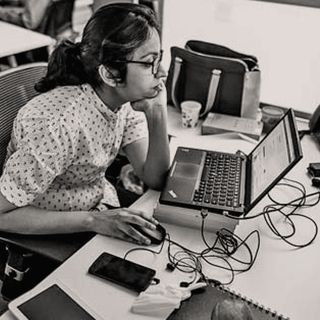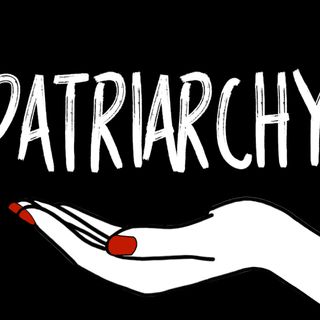
Why Women Make Anonymous #MeToo Accusations – And Why We Have to Believe Them
When women speak up about being wronged, they are shamed, discredited, abandoned — treated as criminals.

The first wave of the growing backlash to India’s MeToo movement was predictable: If anonymous allegations are true, they would not be anonymous. Therefore, all anonymous allegations can be dismissed as fabrications aimed at destroying successful men of good character, politically motivated smear campaigns, the jealous retribution of a spurned lover, the grasping effort of a woman who couldn’t hack it professionally – or maybe it’s true, but without a name it can never be proven, so why put it out there unnecessarily? She should put her name on it if she’s willing to take his.
First, the assumption that allegations of sexual misconduct — anonymous or otherwise — are made up is statistically inaccurate. Yes, a false claim could happen — the accusation against Varun Grover certainly seems fabricated, though that’s no evidence others are — but the exception does not prove the rule. Neither does a lack of identity prove a lie.
With that out of the way, let’s consider why a woman might not put her name to an accusation by examining what happens when she does. The obvious example is the accusations made against MJ Akbar by women who did choose to be identified: Priya Ramani, Ghazala Wahab, and others. So far, more than 11 identified women have accused the Cabinet minister of sexual misconduct ranging from harassment to assault.
Got feelings about #MeTooIndia? Let them out by taking our survey.
His response? To launch a criminal suit against Ramani, the first woman to accuse him of inappropriate behavior. Not a civil case, a suit for damages, which would be the obvious choice of defense against accusations of unprofessional behavior, the choice of fellow accused predator Alok Nath (who, for what it’s worth, has been accused of rape, an actual crime). No, a criminal case that would see Ramani in prison, rather than require her to make financial reparations, should she lose. And there’s a good chance she will lose — not necessarily because she’s made false accusations, but because Akbar has the institutional clout and money to see the case through, across years, till the bitter end. His suit was signed by 97 lawyers, and while the firm representing him claims is standard procedure, and only six will actually be involved in the case, it certainly takes the phrase ‘lawyered up’ to a new level. Meanwhile, there is talk of crowdfunding to enable Ramani to afford adequate representation.
The issue here is not whether Akbar is within his rights to attempt to prosecute Ramani, or anyone else who has accused him. It’s the disparity in his reach and resources that enables him to respond in such a disproportionate way — neither Ramani, nor any other woman has, launched an FIR against him; they have simply made his bad behavior public — it’s the disparity in power his response displays.
Power imbalance is at the heart of the #MeToo movement; a lack of power is what keeps women quietly, cordially, cooperatively working alongside a man who has harassed or abused them. When women speak up about the wrongs they have experienced, they are shamed, discredited, abandoned — treated as criminals. They are labeled as troublemakers, they are overlooked for promotions, they lose their jobs, they aren’t hired into new roles. They have their sexual and professional choices nitpicked and denigrated.
It’s time to admit that our concern over knowing the identities of these women stems more from an ideal that does not exist in this realm: two equal adversaries going head-to-head in accusation and rebuttal. The #MeToo accounts, both anonymous and named, are entirely about exposing that ideal for the false god it is, about exposing the inequality of a patriarchal society that hushes up, ignores, or even approves men’s bad behavior, while simultaneously blaming and punishing women for it. We cannot expect the ideal rules of confrontation to apply when the ideal itself doesn’t exist.
Most societies recognize this in other realms. Whistleblowers’ identities are often protected because the entity they are seeking to expose is so disproportionately powerful that the ramifications of speaking out could be life-ruining, or even life-threatening. These women who are making MeToo statements are whistleblowers, exposing the unfair, abusive and exploitative practices of a patriarchal system. And yet, we expect them to identify themselves, and in doing so willingly open themselves to rape and death threats, expose their families to harassment, and compromise their livelihood.
When we take seriously anonymous accusations — when we don’t dismiss them out of hand, but choose to start from the assumption that a lack of name doesn’t signify a lack of reason, that these women should be heard, their accusations explored — we take a step toward the ultimate goal of #MeToo: That ultimately, there won’t need to be anonymity; coming forward to report harassment or assault will be as welcomed and acceptable as actual harassment and assault will be rare.
Liesl Goecker is The Swaddle's managing editor.
Related


India’s Female Labor Force Participation Rate Drops To 10.7%
